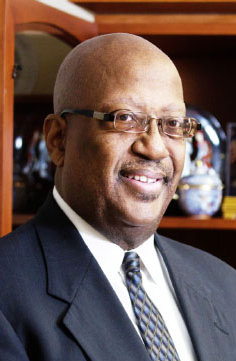

 By Vernon A. Williams, Gary Crusader
By Vernon A. Williams, Gary Crusader
Whenever adults behave badly, what effect does it have on our children?
The fact is young people learn civility from models to which they are exposed – not from books, classroom lessons or tests. When they see love and harmony, they are more prone to reflect it. Conversely, discord and animosity breed discomfort and disruption.
Things were bad enough before the atrocities of the past two weeks. We already witnessed a dramatic spike in hate crimes. We already winced from the pain of deadly police assaults on unarmed Blacks. We already reconciled the hateful influence of the alt-right on the White House. We already saw enforcement of diversity threatened.
The level of contempt in this nation for African Americans is palpable, and has been on the rise since the 2008 election of President Obama and the rise of Black Lives Matter; an organization that amoral educated fools desperately attempt to cast as the moral equivalency of the lethal Ku Klux Klan.
Make no mistake, though the climate of contempt has intensified for Americans struggling to reconcile a Black man in the White House, the vile presence of bigotry and hatred has festered in the U.S. since its founding. That is why, at the cost of his career, Colin Kaepernick rejected the hypocrisy of proclaiming “land of the free…home of the brave.”
What does it do to the psyche of children and young adults to see how the courage of a man who exercises first amendment rights elicit either vitriolic disdain, resentment or nonchalance by the hypocritical establishment and indifferent public?
Forty-five is consistent. His bigotry never wavers. He was mum on the stabbing deaths of two men defending a verbal assault on a female Muslim; he was silent in the wake of the murder of a recent Black college graduate bound for armed services; then the silence was broken as he publicly endorsed brutality in the apprehension of suspects.
Thinly veiled divisive rhetoric like, “take back our country” and “make America great again” allude to periods of intolerance and racial confrontation. Growing numbers of Americans – waving swastikas and the Confederate flag – espouse this ideology, spewing venomous words of bigotry and hatred.
Words from the White House hold power. Forty-five has already shown that he will follow up these comments with political action. Among his first actions were the selection of Steve Bannon, a known anti-Semite and white supremacist, as chief White House strategist and the nomination of Jeff Sessions, who was deemed too racist to be appointed to a federal judgeship in the 1980s, for attorney general.
Moreover, words from this administration emboldened cowardly aggression and expressions of bigotry leaving many Black and brown children fearful that 45 is going to deport their families or attempt to bring back slavery. The Southern Poverty Law Center also documented a “Trump Effect” in the nation’s public schools, noting an uptick in bullying, harassment, fear, and anxiety among children of color.
To sum up the dynamic of this presidency’s harm to children, consider this excerpt from Humanities and Social Sciences Online – an article entitled “Children in the Age of Trump” by Debbie Olson (July 10, 2017). It concludes as follows:
“As we can clearly see in today’s fractured American society, the rise of the “us vs. them” discourse, historically used to unite a country against another country or culture (like during the Cold War), has instead become a rallying cry of division within American culture, often along racial lines. Our children, who have otherwise been fully integrated in diversity through school, media, and social networking, are now subject to incidents of race-hate reminiscent of the pre-Civil Rights and Jim Crow eras. And the reaction of adults, or the lack of corrective reaction, can have serious and long lasting con-sequences. Much like when parents explain to a child that the movie they just watched wasn’t “real,” so too must parents—and especially educators—step up to immediately counter such racist rhetoric with reasons why such words are unacceptable and demeaning to all. Adults in authority must also correct children who make racist comments or commit racist acts. Counter-narratives, based on truth and fact, must be as pervasive in our children’s lives as the barrage of “alternative facts” seems to be. Children are resilient, and can come away from horrible circumstances and events with a resolve to change the circumstances that led to those events. Let’s work to ensure that our children come through the Trump era with a strong resolve to move away from racism, xenophobia, and sexism and towards a progressive, creative, innovative, richly diverse, and compassionate society.”

Be the first to comment